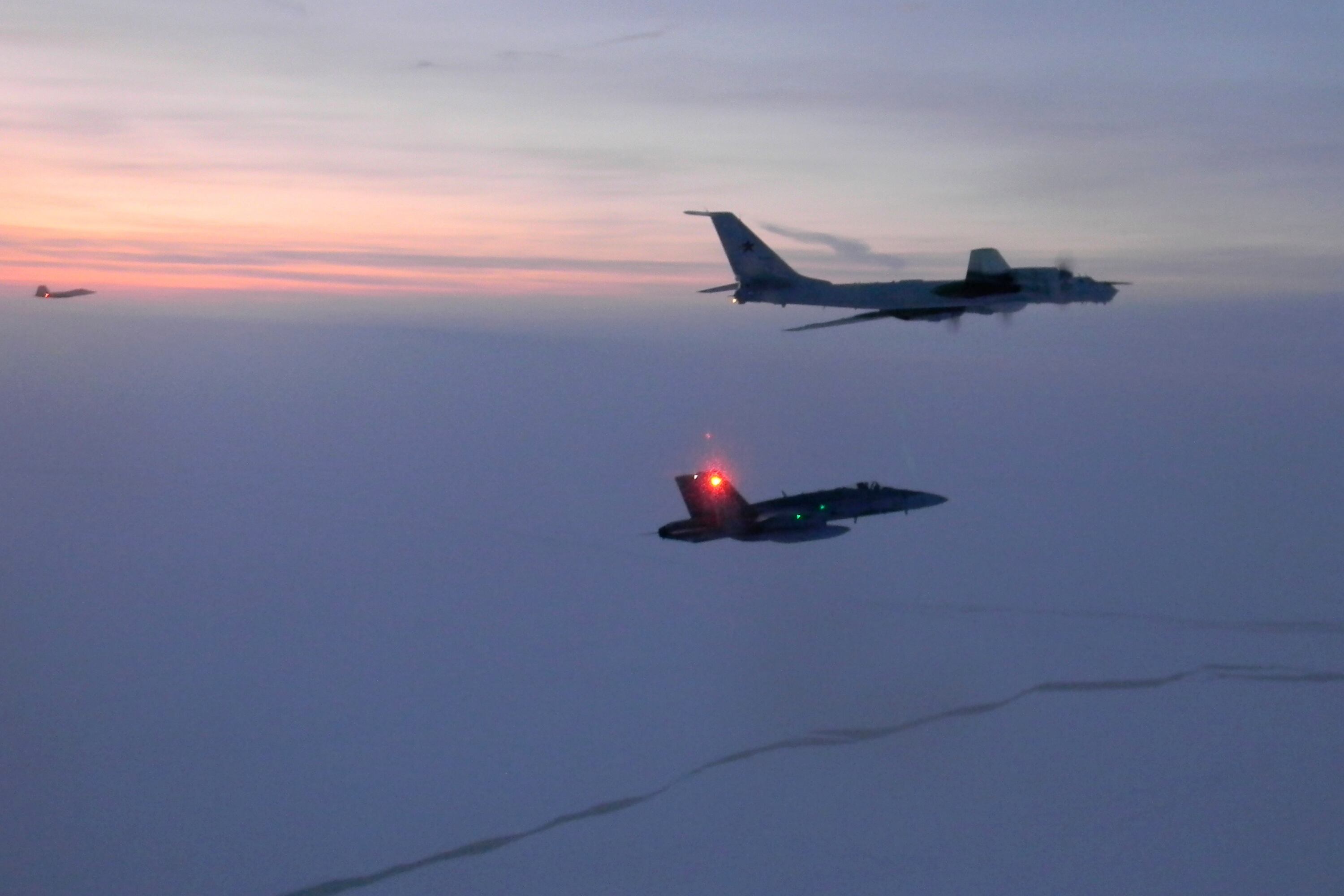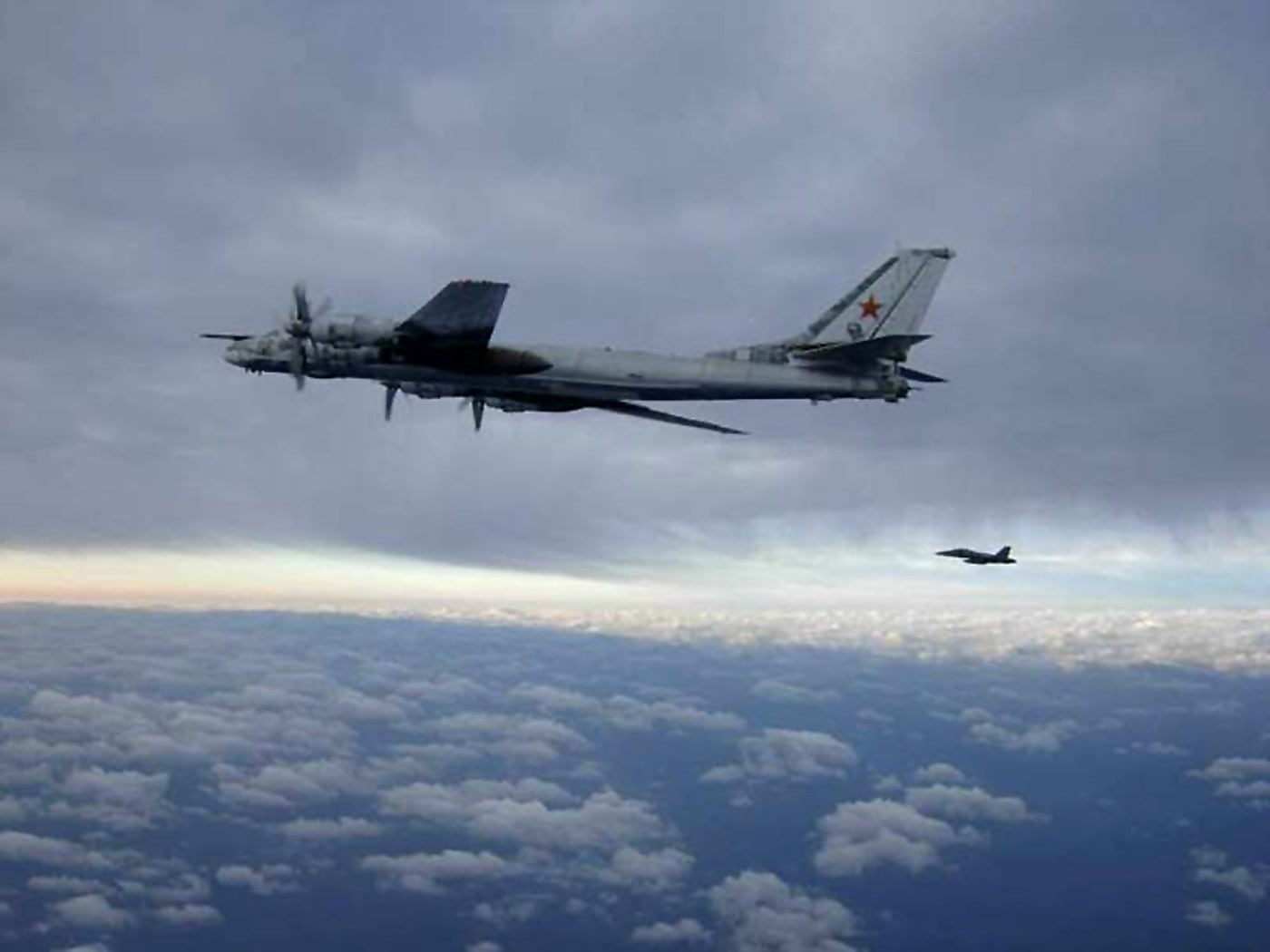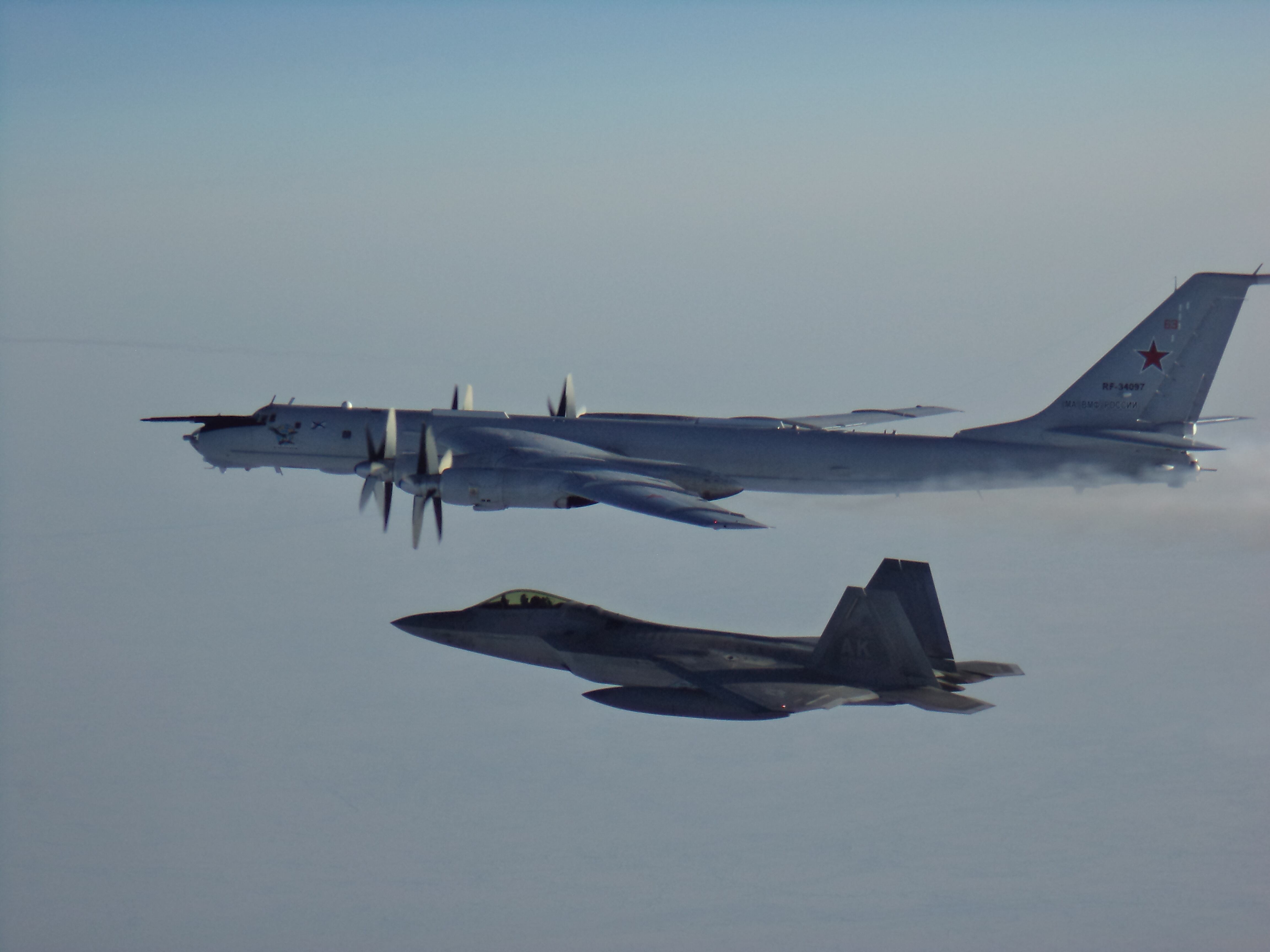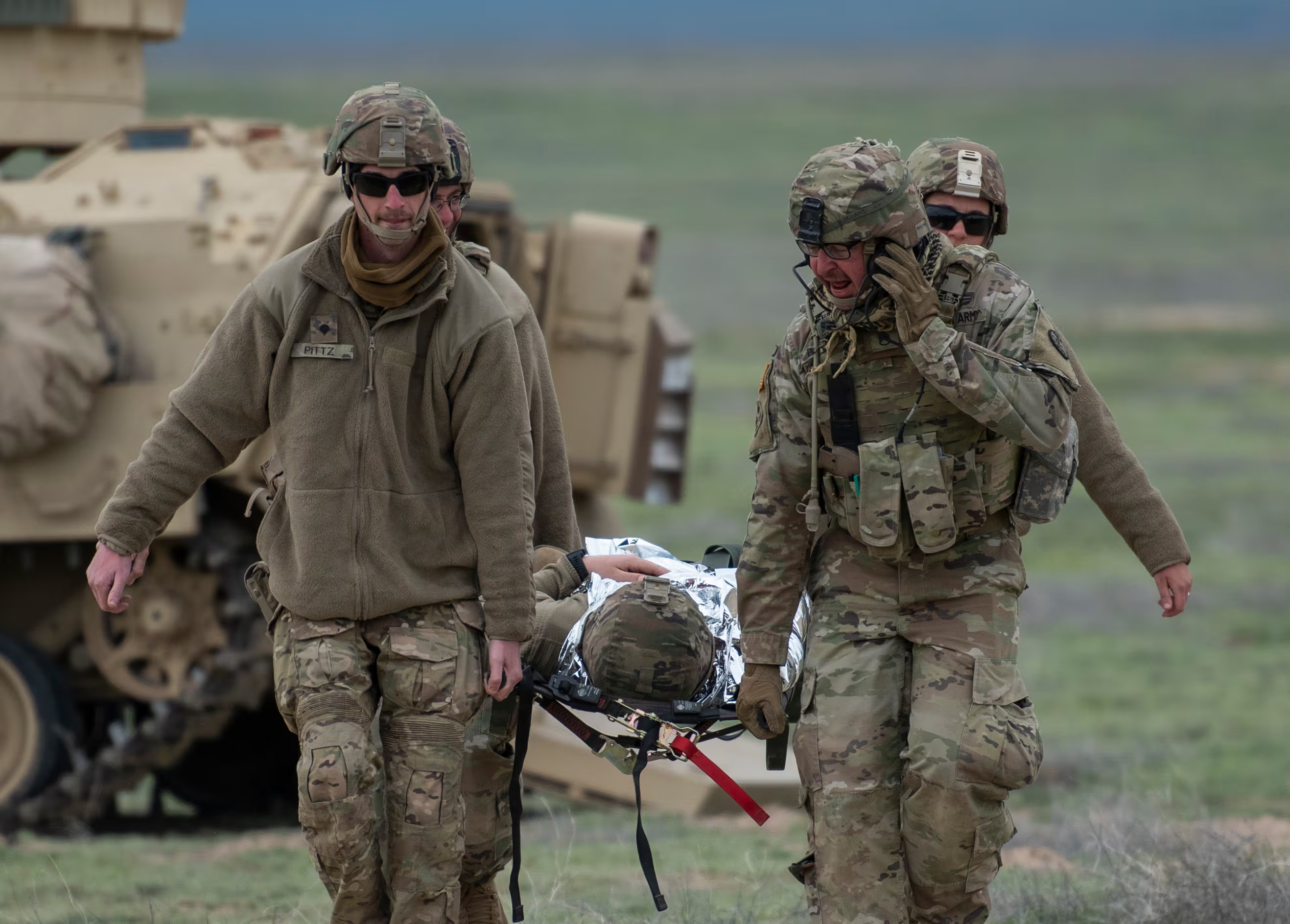North American Aerospace Defense Command said its aircraft intercepted two Russian Tu-142 maritime reconnaissance aircraft near Alaska on March 9.
NORAD said Tuesday that the Russian aircraft came within 50 nautical miles of the Alaskan coast and remained within the Alaskan Air Defense Identification Zone over international airspace for roughly four hours.
The Russian aircraft were escorted the entire duration of the flight in the ADIZ by NORAD’s F-22s and CF-18s, which were supported by a KC-135 Stratotanker and E-3 Sentry aircraft, a news release detailed.
The Russian aircraft never entered U.S. or Canadian airspace and remained over the Beaufort Sea, NORAD said in a release.
“NORAD continues to operate in the Arctic across multiple domains,” Gen. Terrence J. O’Shaughnessy, the commander of NORAD, said in the release. “As we continue to conduct exercises and operations in the north, we are driven by a single unyielding priority: defending the homelands.”

Intercepts of Russian aircraft have been a contentious issue between NATO and Russia, especially as tensions with Moscow remain strained over Russia’s support of separatists in east Ukraine and its aggressive actions countering Turkey in Idlib province, Syria.
While alarming, NATO’s Supreme Allied Commander Europe and commander of U.S. European Command, U.S. Air Force Gen. Tod Wolters said in June 2019, unsafe intercepts between NATO and Russian aircraft have decreased over the past two years, and are in most cases safe.
RELATED

When those intercepts are not safe, the NATO commander explained that its usually the result of a pilot who was “hot-dogging.”
“What I can assure this audience is that well over 99 percent of the intercepts that occur in the air are actually safe,” Wolters told audience members during the June 27 German Marshall Fund’s Brussels Forum.
“In many of the cases where they’re unsafe, when you take a look at the experience level of the operators that were involved, it typically turns into a young man or woman that was probably just hot-dogging it a little bit more than they should,” Wolters said at the forum.
Shawn Snow is the senior reporter for Marine Corps Times and a Marine Corps veteran.





